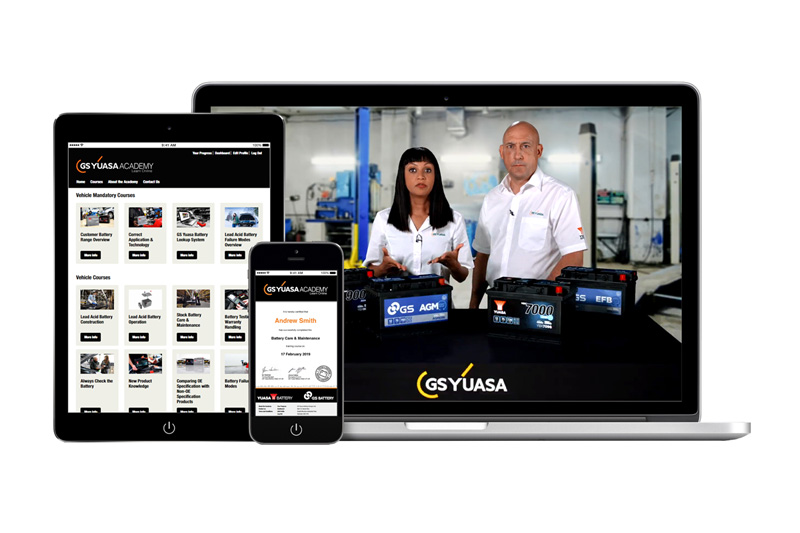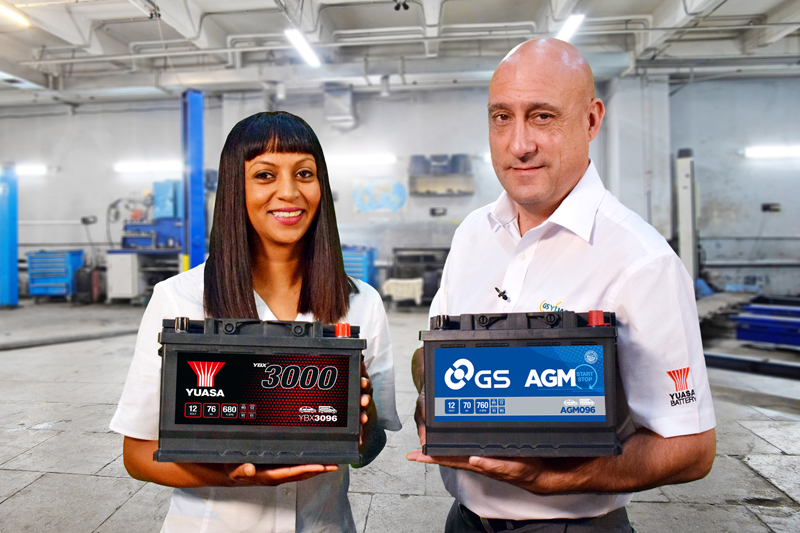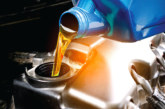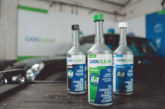
This month, PMF was invited to try the GS Yuasa Academy, the first dedicated online battery training system available to technicians, workshops and distributors.
Modern day vehicles are becoming increasingly advanced with each passing year. Demand for training, therefore, is constantly growing, with more and more industry professionals wanting to increase their knowledge and develop their skills. However, many simply do not have the time to go out and attend physical training sessions. The GS Yuasa Academy offers a solution to this issue, allowing learners to complete courses in the comfort of their own office or home, at any time they feel is necessary. Featuring over 20 certified courses tailored to a number of industry job roles, Yuasa claims that the academy provides users with valuable knowledge and practical skills to further enhance business growth and battery potential.
To find out just how effective these are, we set out to try two of the beginner courses, ‘Basic Battery Operation’, and ‘Battery Health & Safety’. The website’s design was simple but effective, with each module clearly laying out the curriculum and key points for each lesson. Having no prior knowledge of battery technology, we were rather apprehensive about being overwhelmed by information, but the GS Yuasa website assures the visitor that the training is suitable for learners of all experiences, including absolute novices.
With that in mind, we tried our hand at the first module: ‘Basic Battery Operation’. The lesson eases the pupil in by covering the absolute basics, clearly and concisely explaining what a battery actually is within a one minute video. The brevity of each lesson was both refreshing and helpful, and allows pupils to absorb the information in short chunks before moving on to more advanced material. It would certainly suit the busy schedules of motor factors, for example, by allowing them to complete modules at their own pace without having to clear their schedules. Furthermore, the content can be accessed on a range of devices, allowing the learner to complete modules on the go, or from the comfort of their own home.

The case with many course revision quizzes is that questions are often just regurgitated phrases from a section of the video or passage, but the GS Yuasa system forces the learner to apply the knowledge that they’ve picked up with, for example, relevant calculation questions. The academy, therefore, appears to be just as focused on application as it is on knowledge, with the second lesson, ‘Battery Health & Safety’, being just as informative and stimulating.
Everyone learns differently; some are visual learners, whilst others find that they absorb more information audibly, or kinaesthetically (physically). The system that Yuasa employs for its training academy ensures that no learner is neglected.
Each video contains engaging animations and visuals, from diagrams to physical demonstrations of best practice. This was particularly useful in linking the scientific theory to practical application, and understanding the concept at this level will no doubt be useful when encountering any issues that can’t be solved with the help of a manual. Each video is narrated – sometimes by two instructors – also aiding audible learners. Those who learn through reading and writing are also catered for; while the videos move very quickly, learners are able to play the video as many times as they like, allowing them to take notes and wrap their head around the concepts in their own time. Kinaesthetic learners would also benefit from the physical demonstrations shown, as well as the animations.
It’s no secret that the automotive industry is both ageing and facing a skill shortage. Education is vital to solving these issues, as is providing incentives to enter the industry itself. In many ways, the academy does both of these things; whilst clearly educational, the brevity, conciseness and quality of the modules may draw in prospective members of the industry who worry about training and time. Furthermore, the simplicity of the lessons helps to de-stigmatise intimidating subjects: with no prior experience, even we felt comfortable with the content following the completion of the module.
Whilst PMF tried out the most basic modules, it’s worth noting that these courses aren’t just for novices. The academy also has advanced lessons for the more experienced demographic, which cover a number of aspects, including auxiliary batteries and replacement battery configuration. Perhaps even more useful is the ‘New Product Knowledge’ module, which will keep users up-to-date with the latest technology, a must in an ever-revolving market.







